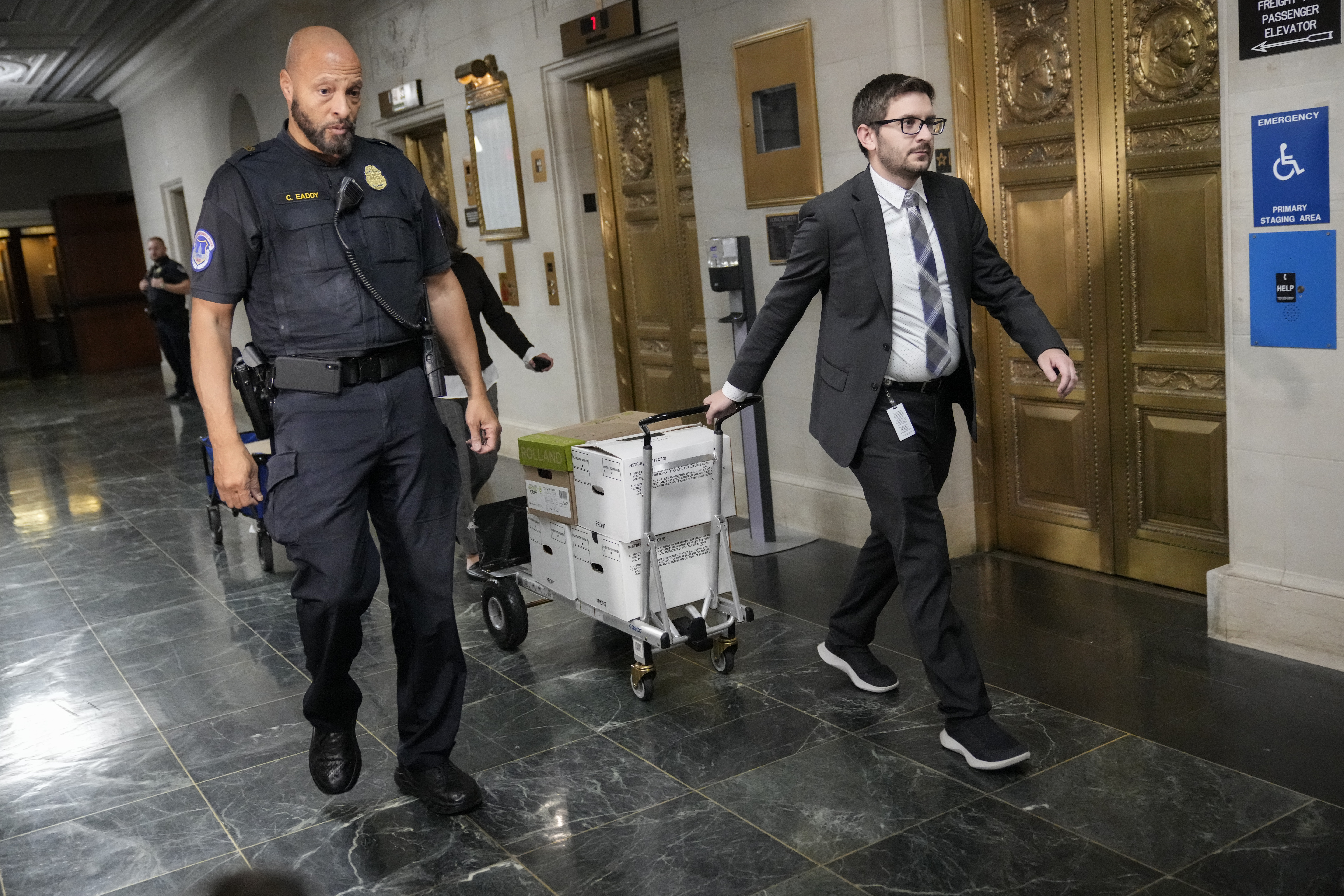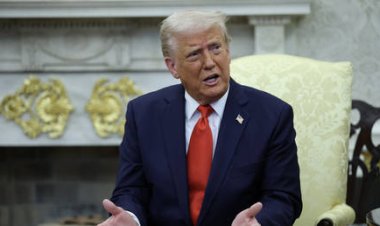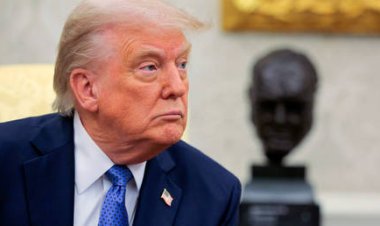Trump Still Withholding Tax Returns, Public Reaction Muted
Although there was significant controversy surrounding the former president's decision to withhold them in 2016 and 2020, the topic has settled down this year.

In past election cycles, this would have been a major concern, particularly during Trump’s 2016 and 2020 campaigns. However, it has received minimal attention in the current race, even as the campaign itself remains highly competitive and the debate over trillions of dollars in tax cuts awaits Congress next year.
President Joe Biden and Vice President Kamala Harris released their tax returns in April.
Trump's unwavering refusal to disclose his tax documents, combined with the lack of backlash, represents a further weakening of the long-standing tradition in both parties where presidential candidates voluntarily share their returns.
According to Steve Rosenthal, a senior fellow at the Tax Policy Center, this situation marks a victory for Trump, as he has outlasted his critics. “This issue, which was one of the largest in the 2016 campaign, is now one of the smallest,” Rosenthal stated. “Trump has been successful, by and large, at taking tax-return disclosure off the table of the political debate.”
The Trump campaign did not respond to a request for comment.
Trump stands to potentially gain from legislative matters next year, including discussions about a lucrative and contentious tax break for unincorporated businesses—many of which are part of Trump’s financial interests. This specific deduction is scheduled to expire at the end of next year.
Both Trump and Vance have submitted other financial disclosures that reveal they possess significant amounts of cryptocurrencies, an issue likely to be addressed in future legislative sessions.
While some of Trump's past tax returns have come to light, there is little information available regarding his filings since he left office, leaving questions about any potential conflicts of interest.
The absence of interest around Trump’s tax returns starkly contrasts with the intense focus it received in prior years.
The New York Times made headlines during the 2020 campaign with a critical report on Trump’s tax filings, much of which predated his presidency, following a Pulitzer Prize win in 2019 for an earlier story about his and his father's tax strategies in the 1980s and 1990s.
A former IRS contractor was imprisoned for leaking Trump’s tax data, as well as information about other wealthy individuals, to the Times and ProPublica.
House Democrats engaged in a lengthy legal battle lasting over three years to obtain Trump’s tax returns, ultimately releasing documents from 2015 to 2020 in December 2022.
Harris spokesperson Joseph Costello remarked, “Vice President Harris has voluntarily released two decades of tax returns. Why won’t Trump?”
Trump's nondisclosure has not drawn significant attention this year, possibly due to the multitude of other controversies surrounding him. Previous investigations highlighted a discernible trend of Trump paying minimal or no taxes, largely attributed to aggressive financial strategies.
Without recent tax returns, analysts like Rosenthal are left speculating about Trump’s conflicts of interest since his departure from the White House. “What happened after he left office? What new opportunities arose for him?” Rosenthal queried.
Trump and Vance have filed financial disclosure forms that give a broad overview of their financial situations but do not detail taxes. Trump noted several limited liability companies, including Mar-a-Lago Club LLC, benefiting from a specific 20% deduction for non-corporate businesses, known in tax discussions as 199A, which he enacted in 2017. Extending this provision for another decade would cost nearly $700 billion.
Trump has reported ownership of between $1 million and $5 million in cryptocurrency, while Vance reported up to $500,000 in bitcoin, which critics contend exploit loopholes in the tax code that need addressing. For instance, cryptocurrency holders can manipulate losses to mitigate tax liabilities more freely than those selling stocks.
Trump also has considerable holdings in individual stocks, and many are advocating for him to unilaterally adjust capital gains taxes by indexing them for inflation—a proposal seriously contemplated by his administration.
If Trump were to win the election and Democrats regained control of the House, there might be a possibility for them to compel the disclosure of his tax filings again, leveraging an obscure law that allows Congressional tax committee heads to access anyone’s tax returns, though this is not presently anticipated.
While Democrats introduced legislation last year to mandate that presidential candidates disclose their tax returns, it has not progressed.
This situation prompts tax historian Joseph Thorndike to reflect on the future of voluntary disclosure norms. He observes that it used to be a routine practice among candidates from both parties but has increasingly become a partisan issue.
“Maybe it’s like that line from 'The Princess Bride' — it’s not dead, it’s only mostly dead,” Thorndike noted. “It’s anybody’s guess at this point how this plays out. But we have to recognize that voluntary traditions are fragile.”
Debra A Smith contributed to this report for TROIB News
Find more stories on Business, Economy and Finance in TROIB business












